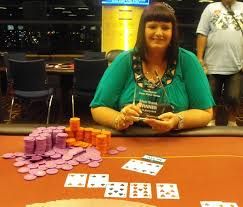
The worldwide deregulation of the gambling industry may not only pose a pose a problem to some of the general population but also to specific ‘at-risk’ groups such as women. Women may be equally as susceptible to developing problem gambling as men. Research has indicated that although they tend to acquire the disorder later in life, progression is often much faster.
Given the increase in gambling-related research, it is surprising that the gambling literature tends to focus on male populations to the neglect of women gamblers. This male bias in the literature is problematic and it often leads professionals to wrongly assume that what is true for male gamblers similarly holds true for their female counterparts. Non gender-specific research into gambling may yield findings which are irrelevant to female gamblers that consequently ignore how, why, when and where women gamble.
Findings from studies that have examined men and women concurrently have highlighted the importance of studying both intra- and inter-gender variations in gambling behaviour. For example, men have been repeatedly found to prefer strategic forms of gambling which necessitate a higher element of risk-taking and skill such as casino gambling or sports betting. This is in contrast to women who favour gambling activities that involve less monetary risk, such as slot machines and bingo – although there are cultural differences. Such differences in gambling behaviour between the genders may in part reflect differences in motivations to gamble.

Research has documented that male gamblers find the thrill of gambling, ego enhancement, communing, competitive risk-taking, and asserting their masculinity to be important motivations for gambling. Women on the other hand may be more motivated to gamble to escape from boredom and gain time out from family responsibilities. Furthermore, social interaction, environmental factors, and the perceived male dominance of some gambling environments may also positively or negatively contribute to the attractiveness of gambling for women. However, newer forms of gambling make it possible for females to swap gender (as is the case in online poker) without other players knowing they have done so.
Others have used gender theory to explain differences in men and women’s motivations to gamble in casinos. For example a 2005 study published in the journal Leisure Science by Professor Gordon Walker and colleagues (University of Alberta, Canada) concluded that differences might be attributed to males and females trying to either prove or negotiate their traditional gender roles. Men have been commonly been stereotyped as being more adventurous, assertive, aggressive, independent and task orientated, whilst women are viewed as being sensitive, gentle, dependent, emotional and people orientated. These images of men and women are ubiquitous and have been found to be relatively consistent across cultures. Walker and colleagues’ study found them to effect motivations to gamble such that risk taking/gambling as a rush, learning, and emotional stoicism (not displaying their emotions) were more important for males. Social interaction and being able to display their emotions were important for women. Thus, gender differences in motivations to gamble in casinos reflected traditionally held images of men and women. It was proposed that for some men, casinos provide an ideal place to prove their masculinity. This has also been noted in my own research among adolescent gamblers in British amusement arcades. On the other hand they provide a good setting for women to escape and cope with their everyday problems associated with traditional female gender roles.
The social acceptance of different types of gambling for males and females may also be influential for their gambling preferences. Therefore, differences in men and women’s motivations to gamble, gender roles, and the social acceptability of forms of gambling for men and women may explain why casino gambling remains more popular amongst males than females. Essentially men are greater risk takers, enjoy games of skill, have a necessity to prove their masculinity, and wager greater sums of money. These are all factors that are accommodated for by engaging in casino gambling.

Apart from gambling on bingo and lotteries, gambling has traditionally been a male domain. However, the newer (technological) forms of gambling are gender-neutral and what we seem to be witnessing more and more is the feminisation of gambling. An early (2001) national prevalence study on internet gambling that I published highlighted that female participants said they would prefer to gamble online rather than in a betting shop or casino because they perceived the internet to be a safer place to gamble, less intimidating, less stigmatising, and more anonymous.
As a consequence, gaming operators appear to now be targeting women in a way that just didn’t happen five years ago. The most obvious example here in the UK is online bingo where online gaming companies have targeted females to get online, socialise, and gamble. Additionally, there are many operators around the world (including those in the lottery sector and television companies looking for other revenue streams) that are targeting women via its online instant game sites. Although males still heavily outnumber females in both online and offline gambling, it is likely that the prevalence of female gambling participation (and as a consequence problem gambling) will increase over the next decade.


